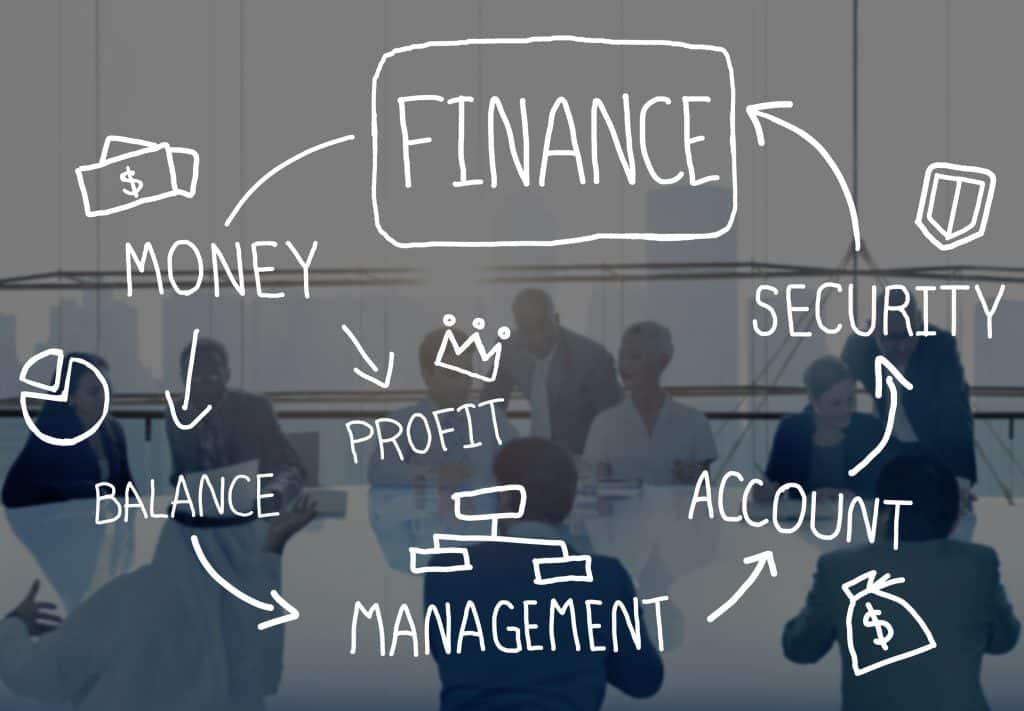5 smart Money Habits to Transform Your Financial Life

How to Organize, Save, and Invest Wisely in a Smart Way

Managing personal finance is not just about earning more money—it’s about making smart decisions with what you already have. A smart approach means understanding your priorities, eliminating wasteful spending, and creating habits that work in your favor over time. When your money is under control, you don’t just pay bills—you build financial security and peace of mind.
Using smart strategies helps you get the most out of every dollar. Instead of letting money slip away on impulsive purchases, you learn to direct it toward meaningful goals such as an emergency fund, investments, or long-term dreams like home ownership or early retirement.
The smartest way to achieve financial freedom is through balance: organizing your budget, saving consistently, and investing with a clear plan. Smart money management allows you to protect yourself from unexpected events, enjoy life without guilt, and steadily grow your wealth.
In this article, you’ll discover the fundamentals of personal finance and how to apply smart habits in your daily routine—so you can organize, save, and invest wisely while building a more stable and fulfilling financial future.
What Is Personal Finance?
Personal finance is the art and science of managing your money in a smart and intentional way. It goes far beyond simply paying bills or trying to save what’s left at the end of the month. Instead, it covers every decision you make with your income—earning, spending, saving, investing, and even protecting your assets.
A strong personal finance system allows you to:
-
Build clarity around where your money goes each month.
-
Prevent unnecessary debt by aligning your expenses with your true priorities.
-
Improve your lifestyle by balancing essential needs with the things that bring joy.
-
Secure your future through savings, emergency funds, and investments.
In practice, personal finance acts as a roadmap for financial freedom. It’s about making smart money choices today so you can create opportunities for tomorrow—whether that means buying a house, traveling more, retiring early, or simply living without financial stress.
When you treat personal finance as a lifelong habit, it stops feeling like a burden and becomes a powerful tool for independence, stability, and long-term wealth.
🔑 5 Key Pillars of Personal Finance

1. Budgeting and Organization
A strong financial plan always begins with smart budgeting. Without knowing where your money goes, it’s almost impossible to grow financially or avoid unnecessary debt. Budgeting is not about restricting your life—it’s about giving yourself the clarity and control to spend intentionally and save consistently.
One of the most effective and widely recommended strategies is the 50/30/20 rule:
-
50% → Essentials: housing, food, transportation, healthcare, and basic utilities. These are non-negotiable costs that keep your life running.
-
30% → Wants: entertainment, dining out, hobbies, vacations, or streaming subscriptions. These expenses bring joy but should stay balanced.
-
20% → Savings and Investments: building an emergency fund, retirement planning, or investing in assets that grow your wealth over time.
This simple formula provides structure while still allowing flexibility. By following it, you create a lifestyle that balances both financial responsibility and enjoyment.
👉 Smart tip: Track every expense for at least 30 days. Many people are surprised by how much money disappears on small, unnoticed purchases like coffee runs or online subscriptions. Identifying these leaks is the first step to redirecting money toward bigger goals.
👉 Pro tip: Use digital tools like Mobills, <a href=”https://joyfinderz.com/mint-app-guide/” title=”Mint App Guide”>Mint</a>Mint, or YNAB to automate expense tracking, categorize your spending, and set reminders for bills. Smart budgeting apps not only save time but also give you real-time insights into your financial health.
Ultimately, budgeting and organization are about building a foundation. Once your money is structured, every other financial pillar—debt management, saving, investing, and education—becomes much easier to apply effectively.
2. Debt Management
Debt is often described as one of the greatest barriers to achieving true financial freedom. While some forms of debt, such as a mortgage or student loan, can be considered investments in your future, most consumer debt—especially credit card debt—can quickly spiral out of control if not managed wisely.
Why debt is dangerous:
High-interest debt drains your income, reduces your ability to save, and keeps you trapped in a cycle of minimum payments. Over time, you end up paying far more than the original amount borrowed, leaving less room for financial growth.
Here are some smart strategies for effective debt management:
-
Avoid long-term credit card debt: Credit cards can be useful tools for building credit and earning rewards, but carrying a balance month to month exposes you to extremely high interest rates. Always aim to pay off the full balance by the due date.
-
Prioritize high-interest debts first: Use the avalanche method, which focuses on paying down the debt with the highest interest rate while making minimum payments on others. This saves you the most money in the long run.
-
Negotiate old debts: If you’re struggling with overdue accounts, contact creditors or collection agencies to negotiate lower interest rates, extended deadlines, or even settlements. Many lenders would rather receive partial payment than none at all.
-
Consider consolidation: If you have multiple debts, consolidating them into a single loan with a lower interest rate can simplify payments and reduce costs.
-
Choose upfront payments when possible: Many service providers and educational institutions offer discounts for paying upfront rather than in installments. Taking advantage of these opportunities can cut unnecessary fees.
👉 Smart tip: Create a “debt snowball” or “debt avalanche” tracker using a simple spreadsheet or an app like YNAB. Visualizing your progress keeps you motivated and committed.
Debt management is not about eliminating all borrowing, but about making smart debt choices. When used carefully, debt can support growth. But when unmanaged, it undermines your financial stability and delays the path to wealth-building.
3. Emergency Fund

Before you think about building wealth through investments, it’s essential to have a safety net in place: your emergency fund. This financial cushion acts as a protective barrier against life’s unexpected events—such as job loss, medical emergencies, home repairs, or family crises. Without it, a single setback could push you into debt and derail your financial goals.
💡 How Much Should You Save?
There is no one-size-fits-all answer when it comes to how much money you should keep in your emergency fund. The ideal amount depends on your lifestyle, career situation, and personal comfort level. However, most financial experts recommend saving between 3 to 6 months of essential living expenses as a starting point.
Think of this as your financial safety net—a buffer that protects you from life’s surprises. Essential living expenses typically include:
-
Housing (rent or mortgage payments)
-
Utilities and basic services (water, electricity, internet, gas)
-
Food and groceries
-
Transportation (fuel, car payments, or public transit)
-
Insurance premiums (health, home, auto, life)
-
Minimum debt obligations
Example in practice:
-
If you spend $2,500 per month on essentials, your emergency fund should be somewhere between $7,500 and $15,000.
-
If you have higher fixed costs—say $4,000 per month—your target should be between $12,000 and $24,000.
When to save more than 6 months:
-
If you work in a volatile industry or have freelance income that fluctuates.
-
If you’re the sole provider for your household.
-
If you don’t have strong health or job benefits.
-
If you live in a high-cost area where expenses can spike quickly.
When 3 months may be enough:
-
If you have a very stable job with reliable benefits.
-
If you live in a low-cost area and have minimal fixed obligations.
-
If you’re still in the early stages of your financial journey and want to build savings while also starting to invest.
👉 Smart tip: Break down your goal into smaller milestones. Instead of thinking “I need $12,000,” aim first for $1,000 to cover minor emergencies. Then build toward one month of expenses, and gradually expand until you reach your target range.
Your emergency fund isn’t just cash sitting idle—it’s financialpeace of mind. Having the right amount saved gives you the confidence to handle unexpected events without falling into debt or disrupting your long-term goals.
Where should you keep it?
An emergency fund must be:
-
Safe → protected from risk (not exposed to market fluctuations).
-
Liquid → easily accessible when you need it, without penalties or delays.
That’s why smart choices include Treasury securities, high-liquidity savings accounts, or money market accounts. Avoid locking your emergency fund into long-term investments like stocks or real estate, where access may be limited.
Smart strategies to build your emergency fund:
-
Automate savings: set up an automatic transfer to a separate account each payday.
-
Start small but consistent: even saving $100 per month builds up significantly over time.
-
Redirect windfalls: bonuses, tax refunds, or side hustle earnings can give your fund a big boost.
-
Keep it separate: avoid mixing your emergency savings with your day-to-day checking account to reduce temptation.
4. Investing for Growth
Once your emergency fund is secure, the next step in building financial independence is to grow your wealth through smart investing. Investing allows your money to work for you, creating additional income streams and compounding your wealth over time. However, not all investments carry the same level of risk, so understanding your profile is crucial.
Types of Investment Profiles:
-
Conservative options – For those who prioritize safety and stability. Examples include:
-
Fixed income investments such as certificates of deposit (CDs).
-
Government bonds, like U.S. Treasury securities, which offer predictable returns.
-
High-yield savings accounts, which grow steadily while keeping funds liquid.
These are best for people who want reliable returns without significant exposure to market volatility.
-
-
Moderate options – For investors open to some risk but still focused on balance. Examples include:
-
Real estate funds (REITs) that provide income from property ownership without the hassle of being a landlord.
-
Exchange-Traded Funds (ETFs), which spread your money across multiple stocks or sectors, reducing individual risk.
-
Balanced mutual funds that mix bonds and equities.
These strike a middle ground, offering better growth potential while keeping risk manageable.
-
-
Aggressive options – For investors with higher risk tolerance who are seeking maximum growth potential. Examples include:
-
Individual stocks, which can provide significant returns but are subject to market fluctuations.
-
Cryptocurrencies, which are highly volatile and speculative, but can generate outsized gains if approached cautiously.
-
Venture capital or startups, where the risk of loss is high but so is the potential reward.
These options require research, patience, and emotional discipline.
-
💡 The Smart Rule: Diversification
Never put all your eggs in one basket. A diversified portfolio spreads your money across multiple assets and risk levels, protecting you from heavy losses if one investment underperforms. For example, you might combine government bonds for stability, ETFs for growth, and a small allocation of stocks or crypto for higher returns.
👉 Smart tip: Regularly review and rebalance your portfolio. Over time, some investments will grow faster than others, shifting your risk exposure. Adjusting back to your target allocation keeps your strategy aligned with your goals.
Smart investing isn’t about chasing quick wins—it’s about building long-term, sustainable wealth. By combining patience, diversification, and consistent contributions, you set the stage for financial security and freedom in the years ahead.
5. Continuous Financial Education

If money is the fuel for financial growth, then knowledge is the engine that keeps it moving forward. The world of finance is constantly changing—new tools, technologies, and investment opportunities appear every year. That’s why continuous financial education is one of the smartest habits you can adopt to ensure long-term success.
Why financial education matters:
-
It prevents costly mistakes, such as falling into high-interest debt or risky investments.
-
It empowers you to make informed decisions rather than relying on guesswork.
-
It keeps you adaptable in a fast-changing economy, where inflation, new markets, and digital assets can reshape strategies overnight.
Smart ways to expand your financial knowledge:
-
Read foundational books: Classics like Rich Dad Poor Dad by Robert Kiyosaki or The Millionaire Mindset by T. Harv Eker teach timeless principles of wealth-building and financial psychology.
-
Follow trusted blogs, podcasts, and YouTube channels: Free content from financial educators can keep you up-to-date with practical tips and new investment trends.
-
Take online courses: Platforms like Coursera, Udemy, or Khan Academy offer accessible lessons on investing, money management, and even advanced topics like behavioral finance.
-
Learn from mentors and communities: Joining investment clubs, online forums, or networking with experienced investors provides real-world insights you won’t find in textbooks.
-
Practice active learning: Don’t just consume information—apply it. Start small with budgeting apps, test investment strategies with small amounts, and review your progress regularly.
👉 Smart tip: Dedicate at least 30 minutes a week to financial learning. Just like exercise strengthens your body, financial education strengthens your wealth-building mindset.
In the long run, continuous education gives you the confidence to face financial challenges, seize opportunities, and adapt to changing circumstances. The smarter you become with money, the more freedom and security you create for yourself and your family.
🎯 Benefits of Good Financial Management
| Benefit | Description |
|---|---|
| Less Stress | Smart money management eliminates debt-related worries and reduces financial anxiety, giving you peace of mind. |
| More Freedom | You gain the freedom to spend intentionally without guilt, enjoying life while staying financially secure. |
| Future Security | Retirement savings, emergency funds, and investments protect you against uncertainties and unexpected events. |
| Dream Fulfillment | Smart financial planning helps achieve long-term goals like traveling, home ownership, higher education, or starting a business. |
| Generational Impact | Good financial management creates a lasting legacy by teaching smart money habits and building assets for future generations. |
| Smart note: The biggest benefit of financial management is freedom—the power to live life on your own terms. | |
Good financial management is not just about numbers—it’s about creating a lifestyle where money works for you, not against you. When you take control of your income, expenses, and investments, you unlock benefits that go far beyond your bank account.
-
Less stress and anxiety 🧘
Managing money wisely means no longer losing sleep over unpaid bills, overdue debts, or unexpected expenses. A well-structured financial plan provides peace of mind, reducing the emotional burden that money problems often bring. -
More freedom to choose 🌍
Smart financial habits give you the power to spend with intention, without guilt. Instead of being trapped by debt or paycheck-to-paycheck living, you can enjoy life experiences—whether that’s dining out, traveling, or pursuing hobbies—while still staying on track with your goals. -
Future security and stability 🔒
Retirement planning, emergency funds, and investments ensure that you’re protected against uncertainty. Whether it’s market fluctuations, job changes, or health issues, strong financial management allows you to face the future with confidence and resilience. -
Dream fulfillment and growth ✨
Money, when managed smartly, becomes a tool for achieving your biggest dreams—buying a home, paying for education, starting a business, or exploring the world. Instead of being a source of worry, it becomes the foundation that supports your personal and professional growth. -
Generational impact 👨👩👧
Beyond personal benefits, good financial management can also create opportunities for your family. From passing down assets to teaching smart money habits, you build a legacy of financial health that extends to the next generation.
👉 Smart tip: Think of money as a partner, not an obstacle. When managed properly, it amplifies your ability to live with purpose, security, and joy.
✨ In the end, the greatest benefit of financial management is freedom—the freedom to live life on your own terms, without fear of financial instability holding you back.
✅ Conclusion
Taking care of your personal finance is a key step toward living with greater peace of mind and independence. Small habits—such as tracking expenses, avoiding unnecessary debt, and building an emergency fund—make a huge difference in the long run. And when you learn to invest wisely, your money becomes a powerful tool to achieve your goals.
Start today, and watch how your relationship with money transforms into something lighter, smarter, and more empowering.





